Description
Composteur à ver de terre en tonneau fermé
Sommaire
Introduction
.
.
Matériaux
.
.
.
.
.
.
.
.
.
.
.
.
.
.
.
Outils
.
.
Étape 2 - .
.
.
.
.
.
.
Étape 5 - .
On top of the sand filter add 30-40cm of good, moist, loamy soil with as many worms as possible ( at least 100).
The add clumps of cattle dung (cow/sheep dung will also do)
Finally add hay.
Étape 6 - Wait 10 days - then you can start adding kitchen waste!
After 10 days wait you can start adding your kitchen waste under the hay layer.
Best is uncooked food.
Avoid: citrus, onions, meat or oily cooked foods.
Dung and hay can be replaced periodically.
Your compost material should be humid, not wet or dry.
Étape 7 - Harvesting your finished worm compost
1.Empty the bin on a tarpaulin sheet, forming a cone of finished compost.
2.leave the cone for several daylight hours.
3.Worms 'migrate' away from light to the bottom of the cone.
4. Scrape all of the worm-free compost on outside of heap (can be used in garden etc) and reform the cone.
5. Repeat the process until all but the lower 5cm of worm compost are left. the remaining compost can be used to start a new compost system.
Étape 8 - Harvesting your Vermiwash
Vermiwash is a potent plant fertiliser and can be collected whenever from the tap. To use for plants it should be diluted with water 6-10: 1
Published
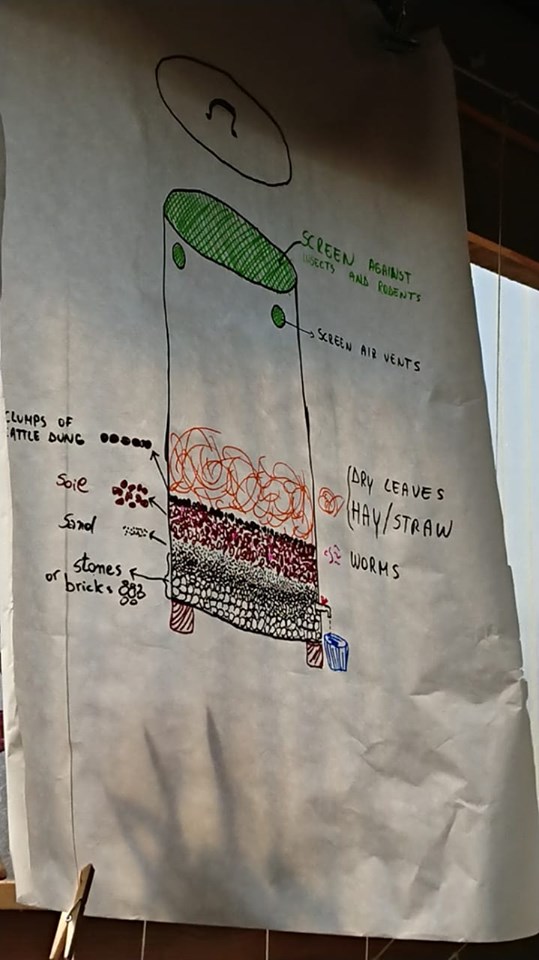
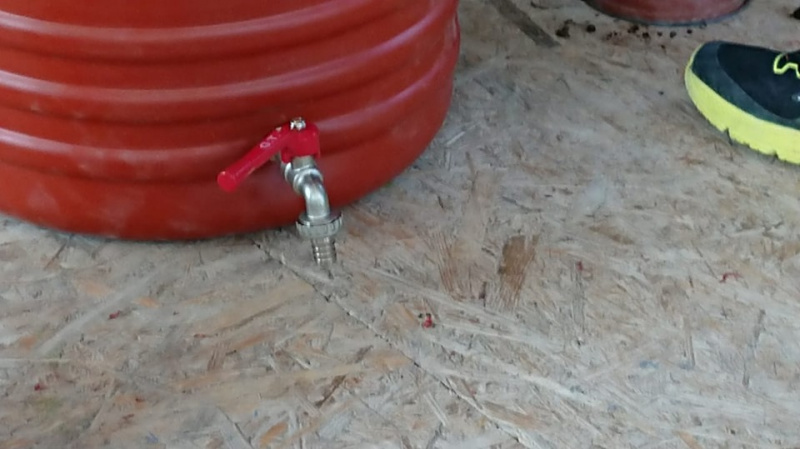
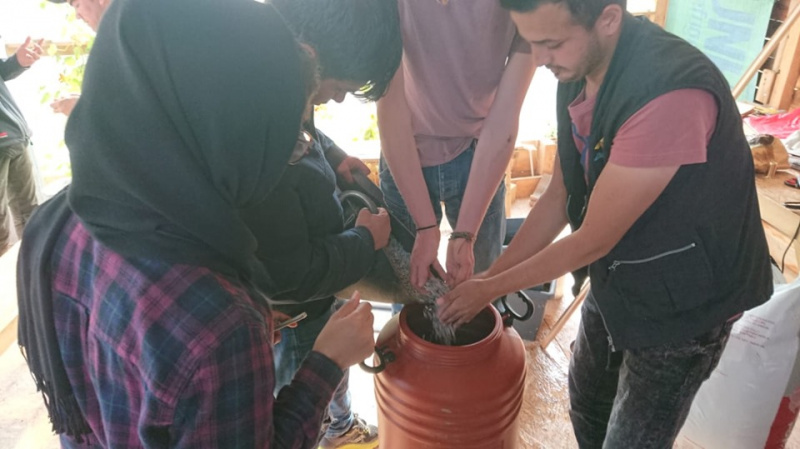
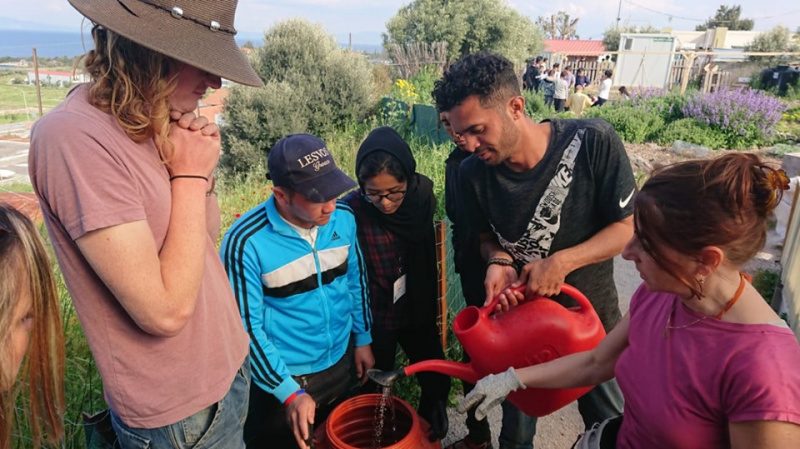
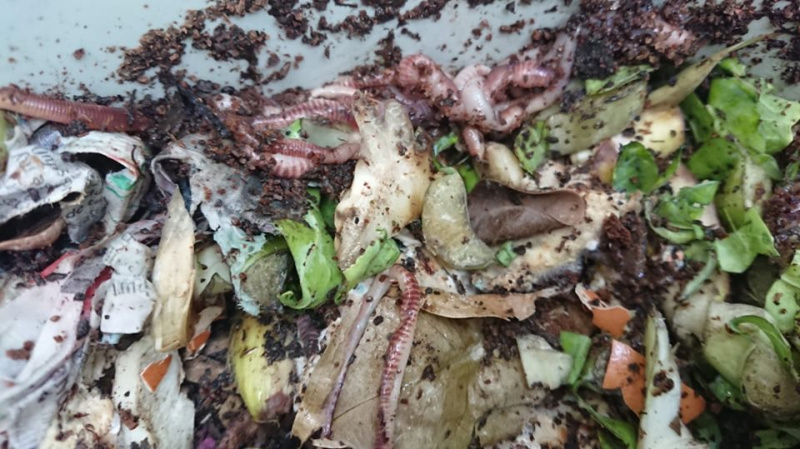
 Français
Français English
English Deutsch
Deutsch Español
Español Italiano
Italiano Português
Português